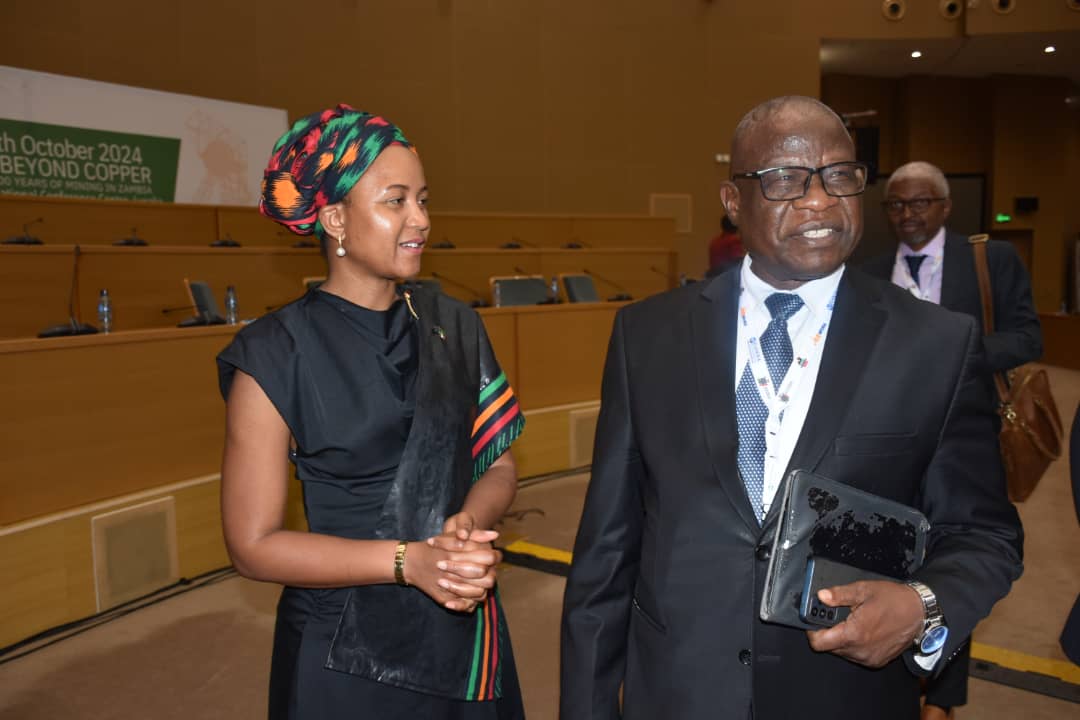By JOHN CHOLA
Zambia will partner with investors to ensure that the benefits of mineral extraction contribute to local industrialization and economic development.
The government has established a Special Purpose Vehicle (SPV) so that all greenfield investments in the mining sector will no longer be entirely owned by private investors.
The SPV, a physical entity, will act as a mandatory partner in all new mining ventures, holding a 30 per cent stake in any operation while private investors will retain the remaining 70 per cent.
It emerged at the 2024 Zambia Alternative Mining Indaba that the aim is to leverage Zambia’s mineral resources so that a significant portion of the wealth generated remains within the country.
“We are developing regulations that define the rules of engagement in the industry,” said Ministry of Mines and Minerals Development Permanent Secretary Hapenga Kabeta.
“These regulations will be transparent and will ensure that everyone entering the industry knows what they are getting into. With the ongoing aerial survey, we are identifying minerals of significant value and ensuring that these resources contribute to the nation’s economic growth.”
Kabeta also emphasised the importance of having Zambian citizens at the core of management within these companies, with the forthcoming regulations set to ensure that local talent and expertise are not sidelined in favour of foreign management.
WIN-WIN
The government’s approach fosters win-win public-private partnerships (PPPs) where appropriate, with some ventures being a 50-50 shareholding. The goal is to create a scenario where both state and private investors benefit from the rich mineral deposits.
Botswana and the Democratic Republic of Congo (DRC) have implemented systems where their governments retain significant shares of the resources extracted, ensuring direct financial benefits for their treasuries.
Zambia aims to replicate and improve upon these models, particularly by addressing the longstanding issue of companies that operate in the country without declaring profits, yet remain operational.
“There’s an urgent need to change this. Many of these companies claim they are not making profits, yet they continue to operate. Our new regulations will ensure that this loophole is closed and that the country benefits appropriately from its resources.”
TAX EVASION
Alongside these domestic initiatives, Zambia is playing an active role in global efforts to establish a United Nations (UN) tax convention.
This move seeks to address the issue of tax evasion by multinational mining companies that exploit the weaknesses in the tax systems of mineral-rich countries like Zambia.
Nsama Chikwanka, National Coordinator for Publish What You Pay, speaking at the joint media briefing alongside Kabeta, said the campaign aimed to ensure that mining companies adhered to just tax practices, no matter where they operated.
“Too often, companies take advantage of inefficiencies and gaps in Zambia’s tax system,” Chikwanka noted. “If we can win this campaign, it will ensure proper revenue collection from mining operations, benefitting Zambia’s economy and its citizens.”
DATA
The recent comprehensive audit of all mining operations in Zambia alongside the high-resolution aerial geographical survey launched by President Hakainde Hichilema on August 14, has provided the government with critical data on the country’s mineral wealth.
According to Edward Lange, Senior Research and Advocacy Officer for Southern Africa Resource Watch, this data underscores the need to urgently formalise all mining activities.
“We’re coming from a history of inconsistent tax regimes. There’s been too much emotion and too little stability in our taxation policies. We need a system like the DRC’s, where there is tax stability, ensuring long-term benefits for the country.”
Permanent Secretary Kabeta acknowledged these past inconsistencies but expressed confidence that the new regulations would provide the stability needed to secure the benefits of Zambia’s mineral wealth for future generations.
Kabeta said as Zambia embarked on this transformative journey, the government’s commitment to creating a more equitable and transparent mining sector would usher significant economic and social benefits to the nation.








